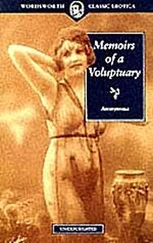It’s been said (by Marilyn, actually) that Norma Jeane was also not allowed to refer to Wayne Bolender as her father. That’s not true at all. In fact, she called him “Daddy” and did so all of her life. His face weather-beaten from being outdoors, Wayne had a wide, engaging smile and kind, humor-filled eyes. It was as if Norma Jeane sensed his empathy for her, because she quickly became very attached to him. Since he truly believed her circumstances were sad, he went out of his way to be nice. Nancy Jeffrey recalled, “My mother was definitely the disciplinarian in our family, whereas my father was very quiet and comforting. I’m sure that’s why Norma Jeane gravitated to him. She was very inquisitive. There was a stool by the bathtub and I remember that she would sit there and, as he shaved, she would ask him all sorts of questions.” Marilyn also once recalled, “Which way was east or south? How many people are there in the world? Why do flowers grow? I had so many questions and Daddy always seemed to know the answers.”
Unfortunately, Wayne could not offer much assistance to Norma Jeane if Ida was angry at her. Cowed by his wife, he kept the peace by keeping his mouth shut. If he felt the girl was being treated unfairly, he wouldn’t like it but neither would he do anything about it. Moreover, if he paid too much attention to Norma Jeane or any of the other children who passed through the Bo-lender home, Ida would become annoyed. With her dark eyes blazing, she would lash out at him and accuse him of coddling them, thereby making them that much more difficult to raise. Then, of course, she would feel badly about losing her temper and apologize to him hours later.
By June 1933, shortly after her seventh birthday, Norma Jeane’s life was settled—such as it was. Yes, there were problems at the Bo-lender home, but it was all that she knew and she was fine there. She got along with her foster siblings and also had one faithful friend who was always there for her and never once brought her anything but joy: her pet dog, Tippy.
Sadly, however, a tragedy involving Tippy would be the catalyst to Norma Jeane’s departure from the Bolender home. As the story goes—and it’s been told countless times over the years in different variations—a neighbor of the Bolenders became annoyed by the dog’s constant barking. In Marilyn’s memoir, she writes that the neighbor, finally fed up and in a moment of fury, attacked the dog with a hoe, savagely cutting Tippy in half.
A Bolender family member explained that what really happened was that Tippy was hit by a car and killed. Ida, having witnessed the event, didn’t want the dead animal continually run over in the street. Therefore, using a garden hoe, she lifted the carcass and dropped it on the driveway. She wanted nothing more to do with it, and decided that the gruesome task of disposing of the pet should wait for Wayne’s return. However, before Wayne got home, Norma Jeane showed up after playing with some friends down the street. Obviously, she was devastated by the sight of her best friend’s dead body, mangled and lying in the driveway with a nearby garden tool seemingly part of the macabre scene. She let out a shriek, burst into tears, and ran into the house. For the next few hours, it was impossible for Ida to calm her down.
Ida, in an attempt to make the pain of the dog’s death seem more bearable to Norma Jeane, explained that some unknown party had shot Tippy in the head and that his death was immediate. She thought that if the girl believed that not much suffering had been involved, she would feel better. However, Norma Jeane refused to believe Ida and had invented her own story. “Tippy was cut up with a hoe,” Norma Jeane insisted through her tears. “The neighbors finally killed him!”
Ida tried everything she could think of to shake that scenario from Norma Jeane’s mind, even telling her the truth at one point. It didn’t work. The girl was absolutely convinced that the neighbors had been plotting her dog’s death for some time and had finally succeeded at it. Ida found this very disturbing—maybe even paranoid. “Ida wondered if Norma Jeane was starting to have delusions like her mother, Gladys,” explains a relative, “because she wouldn’t let go of this crazy idea that the neighbors had hacked up her dog. On some level, I think Ida had always been afraid of Gladys… and now she was wondering about her daughter. She had become very uneasy about it.”
Norma Jeane’s paroxysm lasted into the next day, with the family enjoying silence only during her slumber. Ida had a real problem with this kind of expression of emotion. Actually, she’d recently begun to wonder if she had even been put on this earth to raise such a sensitive child. This certainly hadn’t been the first time Norma Jeane became upset when something in her little world went awry. Ida started to wonder if perhaps her influence was backfiring. While her goal had always been to strengthen Norma Jeane, maybe her firm hand and distant affection was actually having a negative effect on the girl. Had it created a child who would spin out of control when faced with any emotional trauma?
It seems clear now that Ida was confused and felt she was at a crossroads with her foster daughter. She had once believed she and Wayne would adopt the girl. However, Gladys had again made it clear that this would not be the case. In fact, in recent months, Gladys had started saying that she wanted Norma Jeane back. Stalling, Ida always had an excuse as to why the girl could not be returned—she was in school, she had made friends, she was not feeling well. Finally, Ida decided that perhaps the time had come. Norma Jeane was already distraught, Ida told Wayne, so why not let her traumatizing memory of her dog’s death blend with the difficulty she would suffer during a transfer of custody? The next afternoon, she telephoned Gladys. “I think it would be best now if you came and took Norma Jeane,” she told her. “She’s very upset. I think she needs her mother.”
This was not an easy decision for Ida. “She loved her,” said one of her relatives, “but I think she began to feel as if she was failing where Norma Jeane was concerned. She took the child’s fragility as an indication that she had not done what she set out to do with her, which was to make her stronger. But Norma Jeane was strong. She was just a girl. She was very sensitive, very vulnerable… and that’s what threw Ida off, I think.”
The next day, Norma Jeane was told that her mother was on her way and that she would be taking her home with her. This was confusing. “But I am home,” Norma Jeane said. “Yes you are,” Ida told her, “and you can come back anytime you want to.”
Still quietly sniffling through tearful moments for the rest of the day, the little girl kept her eyes fixed on the street outside the front window waiting for the mysterious—and sometimes even scary—woman who had come from time to time to visit and promise her a good life “someday.”
Silent and focused only on getting the job done in an efficient manner, Ida packed a little suitcase for Norma Jeane, just a few things. Then she called her into the kitchen and sat her down at the table for a talk. “I want you to know that we’ll always be here for you,” she told her, according to a later recollection. She spoke very slowly as if to give more weight to her words. “We’ll always love you,” she added reassuringly. “But we just think that it’s time for you to know your mother. Your real mother. Do you understand?” As Ida spoke to Norma Jeane, all of the other foster children were grouped in the living room, crying. The noise must have driven Ida crazy. Clearly, no one wanted to see Norma Jeane go, even though the time had come for her departure. Ida began to rethink things. Was this really the right decision? Perhaps she was being hasty? Should she call Gladys back and say she had changed her mind? No. She had always been decisive and now was not the time to change.
Читать дальше












